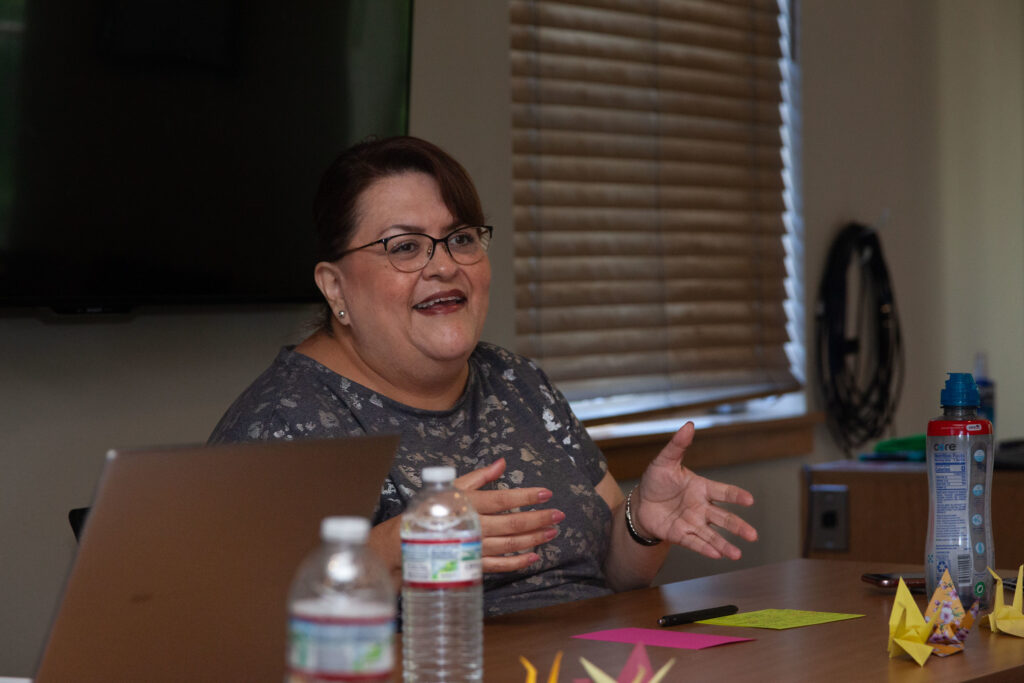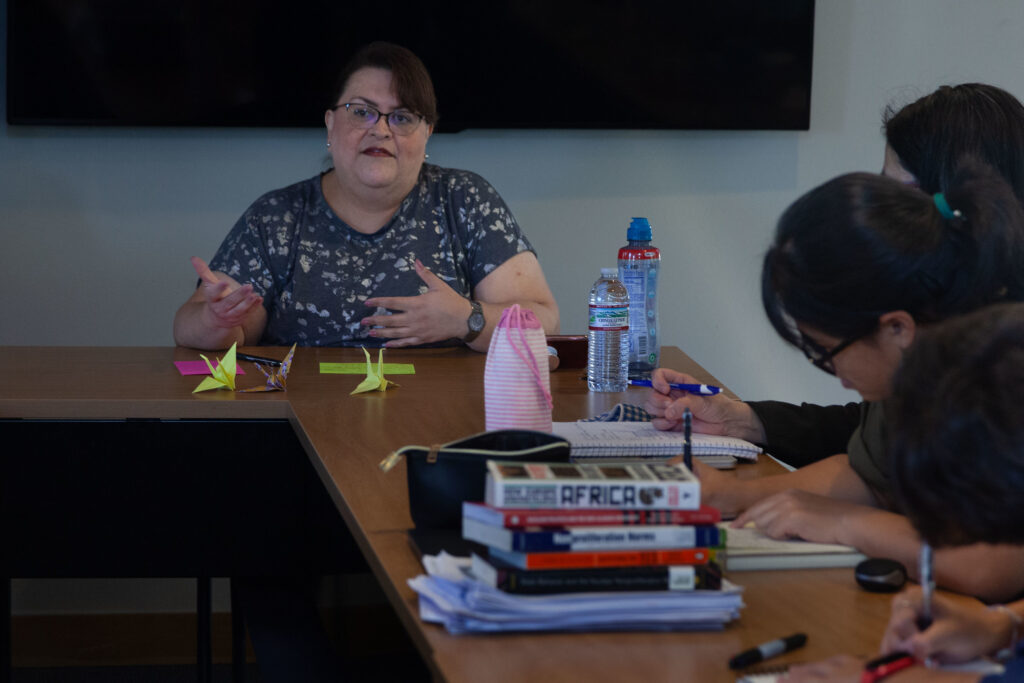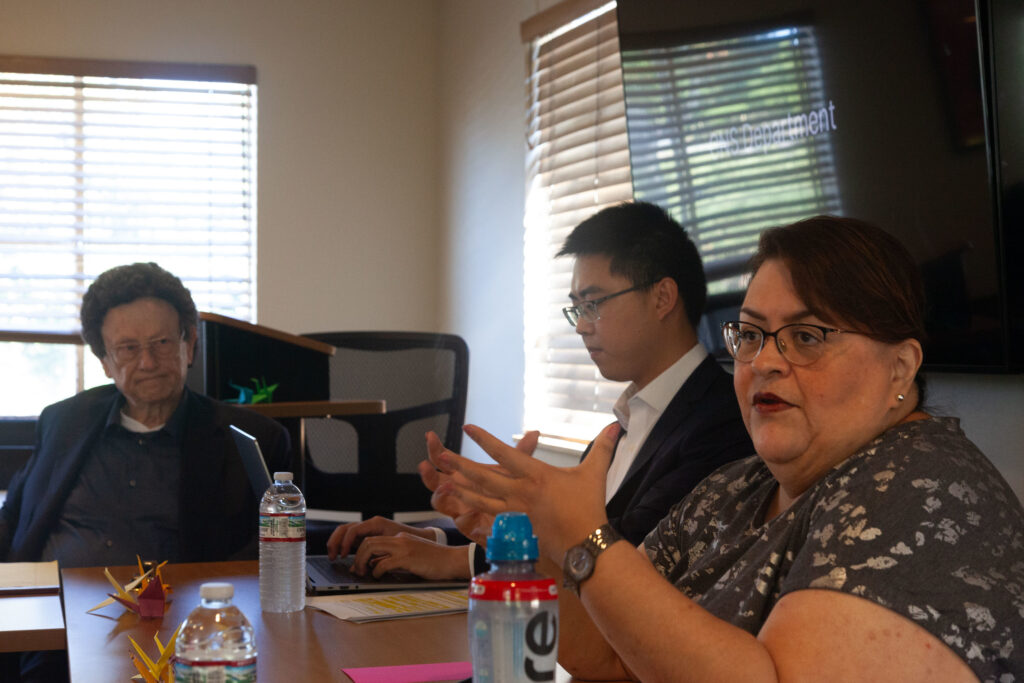October 7, 2024
MONTEREY – Ms. Tonie Jaquez, a very experienced Mexican diplomat, visited the James Martin Center for Nonproliferation Studies and offered her extensive knowledge and practical experience to students in a series of guest lectures, consultations and Q&A sessions.
The visit, which coincided with the preparatory phase of the Center for Nonproliferation Studies’ renowned Nonproliferation Treaty Review Conference simulation class, began with a CNS Seminar discussion “taking the pulse” of the NPT review process. She was joined by Dr. William Potter, the head of CNS, and research associate Yanliang Pan.
The NPT, Ms. Jaquez explained, is a product of the United Nations’ broader disarmament machinery – one that is “keeping busy but … not working,” she said. The stalemate in the Conference on Disarmament, based in Geneva, has been ongoing for over a quarter-century. The UN General Assembly’s First Committee has seen many proposals but similarly little success. And the NPT, a valuable venue for communication between nuclear weapons states and non-nuclear-weapons states alike, is at risk of losing this function, she said.
“This review cycle, we need to focus more on negotiations and discussions,” she said with reference to the latest iteration of the recurring five-year process that is designed to track the implementation of the NPT and move it forward with new ideas. “My worst fear is that this will turn into a game of who is willing to take the blame for being the reason for no consensus.”
Decisions in the NPT context historically have been taken by consensus although such a decision-making process is not mandated by the Treaty. In practice, a consensus approach has meant that a single party that objects to the text under consideration can block its adoption.
Speaking to the NPT review conference simulation class, which this fall is simulating the upcoming Preparatory Committee Meeting scheduled for April and May 2025, Ms. Jaquez talked about the possibility of using voting in the context of the NPT. Technically, she said, this is within the realm of possibilities – voting is a legitimate way of making decisions in the NPT review process. However, it would be a significant departure from past practice and one that few chairs would consider taking.
Typically, States Parties produce a number of documents at each Preparatory Committee meeting, including national opening statements and working papers on the different clusters of NPT issues — i.e., regarding disarmament, nonproliferation, and peaceful nuclear use. Jaquez drew on her extensive experience on Mexican delegations to various international fora, including the NPT review process, to provide the students in the simulation exercise with actionable and concrete advice on how to approach the sometimes-daunting task of producing these documents.
Participants in the NPT simulation come from a wide array of countries, including Austria, India, Japan, Kazakhstan, North Macedonia, Russia, South Sudan, and Turkmenistan. In order to foster empathy, no student can play the role of their own country. They will aim – against all odds – to adopt a consensus final document that makes recommendations to the 2026 NPT Review Conference. In the “real world,” this has continuously proven to be challenging. It remains to be seen whether the simulated environment will yield a more positive conclusion.
Regardless of the outcome, the advice by Ms. Jaquez will contribute to a greater degree of realism and professionalism on the part of the student diplomats.



